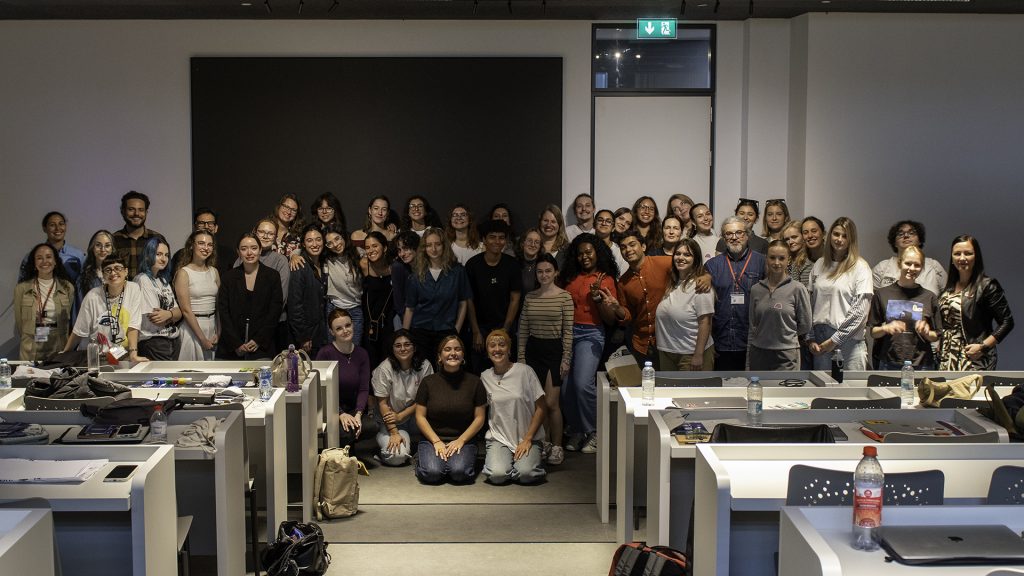The ChallengeEU Alliance continues to promote collaboration and innovation through the Lab IDEAS: Impact-Driven Education for Action and Sustainability Blended Intensive Program (BIP), organized by IADE – Faculty of Design, Technology and Communication of Universidade Europeia, one of the founding institutions of the alliance in Lisbon, Portugal.
The programme, held under Erasmus+, gathered 51 participants, including 36 international travelling participants from partner universities. Among them were students and professors from two ChallengeEU institutions, Latvia University of Life Sciences and Technologies and the University of Warmia and Mazury in Olsztyn, who joined multidisciplinary teams to co-create innovative solutions addressing digital behaviour and social responsibility.
Under the theme “Designing Safe Digital Communities”, and in collaboration with the Portuguese Public Security Police (PSP), participants explored how social design can help prevent cyberbullying, foster empathy, and promote safer and more inclusive online environments.
Students proposed a range of solutions, including ideas for board games for children and teenagers, creating a website to support victims, and developing informational materials for professionals involved in bullying prevention in cooperation with the police. They also drafted the idea of establishing an association that could later evolve into a social movement. As explained, this could help raise awareness of bullying in society and schools and contribute to creating a safe environment where victims can receive practical and psychological support. All of these solutions were presented to representatives of the police in Lisbon.

“The concept of this programme really appeals to me. It was four days of intensive work with a tangible outcome at the end (presented to the client) — that’s exactly what we, students of Trend Analysis and Creation, enjoy. I’m very glad we have the opportunity to take part in initiatives like this. I’d happily do it again,” says Dominika Staniszewska, a student of Trend Analysis and Creation at University of Warmia and Mazury.
Wiktor Kotarski, who also studies at UWM, adds:
“I think the idea is excellent because it lets us look at what we’ll be doing professionally from a completely different perspective. Another advantage is that it allows you to test yourself in a new, international environment. In my view, the intensity is a plus – in a short time you can see whether this kind of work is for you. And if you decide it isn’t, you haven’t lost much time.”
“Because we worked in mixed groups, we were able to experience intercultural exchange. Every student brought something new to the project — for example, a different way of thinking or acting. My colleague and I encouraged our teammates to use design-thinking methods, which is how we work at UWM. We exchanged knowledge, which was both pleasant and instructive,” says Dominika.
The meeting in Lisbon was a valuable experience not only for the students but also for their accompanying supervisors. For example, Prof. Līga Paula (LBTU) noted that taking part in the mobility programme was an excellent opportunity to gain experience in organising BIPs, establish new contacts, and exchange insights with international colleagues.
Through this initiative, the ChallengeEU Alliance reinforces its commitment to interdisciplinary learning, mobility, and social impact, empowering students and educators to transform real-world challenges into opportunities for positive change.




